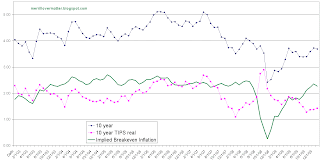From Creditwritedowns:
About a month ago I wrote a post called “The coming wave of second mortgage writedowns” the gist of which was that the big four banks (Citi, JP, BofA, and Wells) had a shed load of exposure to now worthless second mortgages. With many first mortgages now hopelessly underwater, it stands to reason that second mortgages on those same properties have zero value. . . .
So the original loss from second-liens, as reported by the stress tests, was $68.4 billion for the four largest banks. If you look at those numbers again, and assume a loss of 40% to 60%, numbers that are not absurd by any means, you suddenly are talking a loss of between $190 billion and $285 billion. Which means if the stress tests were done with terrible 2nd lien performance in mind, there would have been an extra $150 billion dollar hole in the balance sheet of the four largest banks. Major action would have been taken against the four largest banks if this was the case.Please go over and read the whole thing. I stopped following the bank several quarters ago. Any additional facts on this possibility would be appreciated.
This would explain the banks' dragging their feet foreclosing properties. Not only would they have to mark down their first mortgage but the 2nd lein would be marked to zero instead of the 15-20% loss as described in the 'Stress Tests' of early last year.












